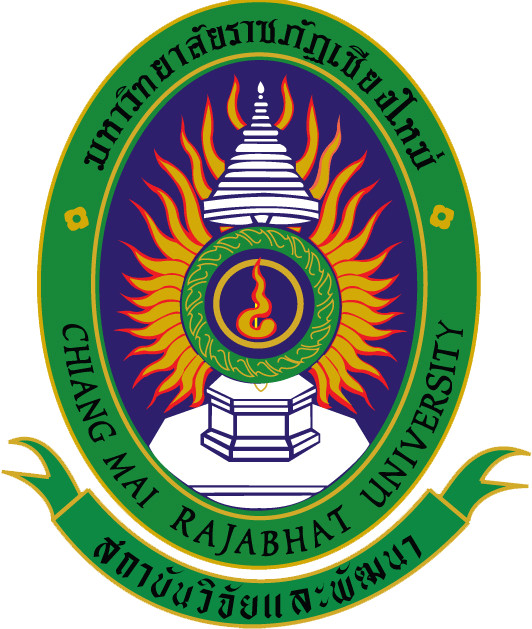
ระบบสารสนเทศงานวิจัย สถาบันวิจัยและพัฒนา มหาวิทยาลัยราชภัฏเชียงใหม่
Research Information System(RIS)
รูปแบบการจัดกิจกรรมการเรียนรู้โดยใช้ชุมชน เป็นฐาน เพื่อพัฒนาทักษะที่สำคัญของผู้นำและคนทำงานยุคใหม่ ตามแนวคิดวิศวกรสังคมของนักศึกษามหาวิทยาลัยราชภัฏเชียงใหม่
อาจารย์ปภัส ฉัตรยาลักษณ์
คณะครุศาสตร์
คำสำคัญ :
เลขทะเบียน :
1606-65-EDU-CMRU
บทคัดย่อ
การวิจัยครั้งนี้มีวัตถุประสงค์เพื่อสร้างรูปแบบและศึกษาผลการใช้รูปแบบการจัดกิจกรรมการเรียนรู้โดยใช้ชุมชนเป็นฐาน เพื่อพัฒนาทักษะที่สำคัญของผู้นำและคนทำงานยุคใหม่ (Soft Skills) ตามแนวคิดวิศวกรสังคม ของนักศึกษาคณะครุศาสตร์ มหาวิทยาลัยราชภัฏเชียงใหม่ กลุ่มเป้าหมายคือ นักศึกษาคณะครุศาสตร์ มหาวิทยาลัยราชภัฏเชียงใหม่ จำนวน 50 คน ซึ่งได้มาด้วยวิธีการรับสมัครเข้าร่วมกิจกรรมตามความสมัครใจ (Purposive Sampling) เครื่องมือที่ใช้ในการวิจัย ได้แก่ รูปแบบการจัดกิจกรรมการเรียนรู้โดยใช้ชุมชนเป็นฐาน ซึ่งเป็นแผนการจัดกิจกรรม จำนวน 10 แผน ระยะเวลาในการจัดกิจกรรมตามรูปแบบ รวม 44 ชั่วโมง และแบบวัดทักษะที่สำคัญของผู้นำ และคนทำงานยุคใหม่ (Soft Skills) ตามแนวคิดวิศวกรสังคม ประกอบด้วย 1) แบบวัดทักษะการคิด 2) แบบวัดทักษะการสื่อสาร 3) แบบวัดทักษะการประสานงาน 4) แบบวัดทักษะการสร้างนวัตกรรม สถิติที่ใช้ในการวิเคราะห์ข้อมูล ได้แก่ ค่าเฉลี่ย ส่วนเบี่ยงเบนมาตรฐาน และและทดสอบสมมติฐานการวิจัยด้วย Wilcoxon T-Test (The Wilcoxon Matched Pairs Signed-Ranks Test)
ผลการวิจัยพบว่า 1) รูปแบบการจัดกิจกรรมการเรียนรู้โดยใช้ชุมชนเป็นฐาน เพื่อพัฒนาทักษะที่สำคัญของผู้นำและคนทำงานยุคใหม่ ตามแนวคิดวิศวกรสังคม ได้รับการประเมินคุณภาพอยู่ในระดับมากที่สุด (µ = 4.67) โดยที่ด้านแนวคิด ทฤษฎี สาระสำคัญ ด้านวัตถุประสงค์ของแผนการจัดกิจกรรม และด้านการวัดและประเมินผลมีคุณภาพเหมาะสมอยู่ในระดับมากที่สุด (µ = 4.80) และ 2) ผลจากการทดลองใช้รูปแบบกิจกรรม ทำให้ระดับทักษะที่สำคัญของผู้นำและคนทำงานยุคใหม่ของนักศึกษา ตามแนวคิดวิศวกรสังคม ทั้ง 4 ด้านแตกต่างกันอย่างมีนัยสำคัญทางสถิติที่ระดับ .05 โดยที่ภายหลังการเข้าร่วมกิจกรรม นักศึกษามีคะแนนระดับทักษะที่สำคัญของผู้นำและคนทำงานยุคใหม่ ตามแนวคิดวิศวกรสังคม เพิ่มขึ้นเพิ่มขึ้นมากกว่าก่อนเข้าร่วมกิจกรรม
Abstract
The purposes of this research were to create a model and study the results of use “learning activity model using community based to develop soft skills through social engineer for students in Chiang Mai Rajabhat University”. The target group is Faculty of Education students Chiang Mai Rajabhat University, 50 people, obtained through recruitment to participate in voluntary activities. (Purposive Sampling). The research tools include a community-based learning activity format, 10 activity plans, The duration for organizing activities according to the format is 44 hours in total, and measurement of essential skills of leaders and modern workers (Soft Skills) according to the concept of social engineers, consisting of 1) thinking skills measurement, 2) communication skills measurement, 3) coordination skills measurement, 4) innovation building skills measurement. Statistics used in data analysis include mean and standard deviation. and test the research hypotheses with the Wilcoxon T-Test (The Wilcoxon Matched Pairs Signed-Ranks Test).
The results of the research found that 1) the model of “learning activity model using community based to develop soft skills through social engineer for students in Chiang Mai Rajabhat University” the quality was assessed at the highest level (µ = 4.67), with the quality of the concepts, theories, essences, objectives of the activity plan and assessment and evaluation is at the highest level (µ =4.80) and 2) Results from experimenting with activity model makes students' level of Essential skills for leaders and modern workers (Soft Skills), according to the concept of social engineering both overall and each aspect were significantly different at the .05 level. After participating in the activity students have 4 Soft Skills according to the concept of social engineering, which is higher than the score before participating in activities.
ไฟล์งานวิจัย
01 Cover_Learning Activities Model วศค2565 - update.pdf
02 Report research วศค. 2565_part1 ส่วนนำ - update-ลายน้ำ.pdf
03 Report research วศค. 2565_part2_บทที่1ถึง5 - update-ลายน้ำ.pdf
04 Report research วศค. 2565_part3 Bibliography _ Appendix - update-ลายน้ำ.pdf
9 18 ส.ค. 2565
กองทุนวิจัย มหาวิทยาลัยราชภัฏเชียงใหม่
202 ถ.ช้างเผือก ต.ช้างเผือก อ.เมือง จ.เชียงใหม่ 503000
053-88-5555